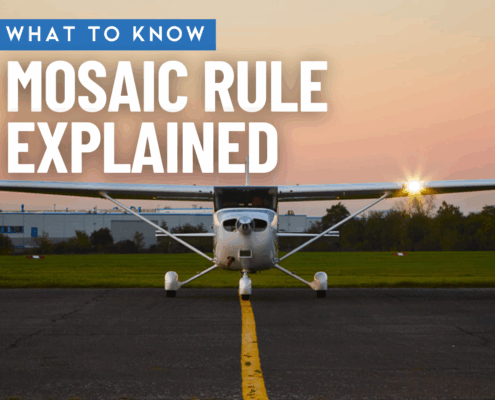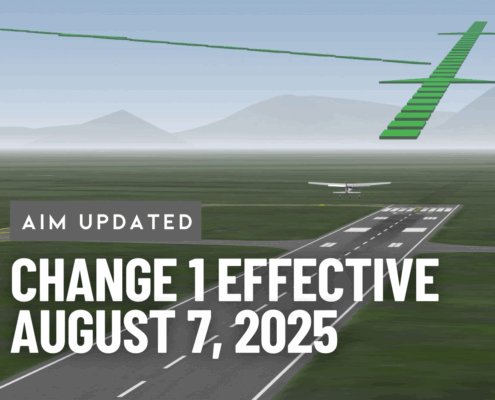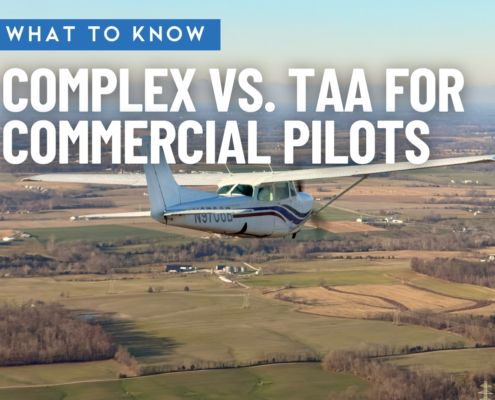
The FAA is Conducting a Ramp Check. Now What?
/
3 Comments
You’ve just shut down, tied down, and are grabbing your flight bag when a neatly dressed individual flashes a badge and says, “Hi, I’m with the FAA.” That sound you just heard? It’s your stomach dropping. But before panic sets in, take a breath. Ramp inspections—yes, those dreaded “ramp checks”—are a normal part of the FAA’s safety oversight system. They’re not necessarily a sign that you’ve done anything wrong.

MOSAIC Rule Explained: New Sport Pilot Privileges and LSA Standards
The 1320-pound limitation was removed from the definition of LSAs (July, 2026) and Sport Pilot eligible (October, 2025) aircraft. The new rule shifts to a performance-based standard for both LSAs and Sport Pilots, though the criteria for both are not the same.

Often Overlooked Regulations
As pilots, we are required to understand the regulations that apply to our flight and ground operations. While most of us learned the appropriate rules during flight training, it’s easy to forget the ones we don’t use every day—and sometimes even misremember the ones we do use. The regulations outlined below tend to be overlooked by pilots and are worth a refresher.

AIM Change 1 Update Clarifies Upwind Leg at Towered Airports
A new revision to the Aeronautical Information Manual (AIM) is now in effect, and it includes an important clarification for pilots operating at towered airports. The FAA has updated paragraph 4-3-3 to realign the definition and depiction of the upwind leg with how it's used by air traffic control (ATC) in practice.

Unintended Consequences of Reducing ATP Minimum Hours
The aviation industry has long debated the minimum flight hours required for pilots to obtain an Airline Transport Pilot (ATP) certificate, a prerequisite for serving as a pilot in command at major airlines. Currently, the Federal Aviation Administration (FAA) mandates 1,500 hours of total flight time for most pilots seeking an ATP certificate, although certain exemptions (e.g., for military pilots or graduates of approved aviation programs) allow for reduced minimums—known as a Restricted ATP.

Pilot training experience requirements—just do what the regulation says!
The crafty, creative CFI thought it would be a great opportunity for the student to get in some practice at another airport. In this case, he had the student grab another airport (a 4th) along the way. They thought that the student doing another landing at Marion (KMWA) would be some good additional experience for them at a towered airport. They aren’t wrong about that, but in a strict sense, it now means that cross-country solo flight doesn’t count toward the experience requirements for a private pilot certificate.

The 10-Hour Rule: Complex vs. TAA for Commercial Pilots
TAA aircraft are frequently more available, more affordable, and emphasize situational awareness, automation management, and GPS navigation skills that directly translate to real-world operations.

Updated PIC Currency Requirements
A seemingly subtle change to § 61.57 that went into effect in early December has a significant affect on PIC currency requirements. Of course, everyone is aware that three takeoffs and landings in the same category, class, and type (if required) are required to carry “passengers,” but the recent update to landing currency in § 61.57(a)(b) replaces the word “passengers” with “persons.”

FAA Introduces New Rules for CFIs Effective December 1
Big changes are coming for certified flight instructors on December 1, 2024. While it's been widely publicized that CFIs will no longer have an expiration date associated with their certificate under the new rules, CFIs are required to maintain recent flight instruction activity or participate in a flight instructor refresher course (FIRC) at least every 24 months. Failure to document and apply for recency will have the same effect as a CFI expiring.

Navigating the ATP Certification Process: A Pilot’s Guide
To be eligible to serve as an airline crew member, pilots must possess an Airline Transport Pilot Certificate (ATP). To reach the ATP level, pilots now have the option of pursuing an unrestricted ATP subject to FAR Part 61 requirements or may choose to pursue a Restricted ATP (R-ATP) qualification by graduating from an approved, collegiate-based aviation program.
